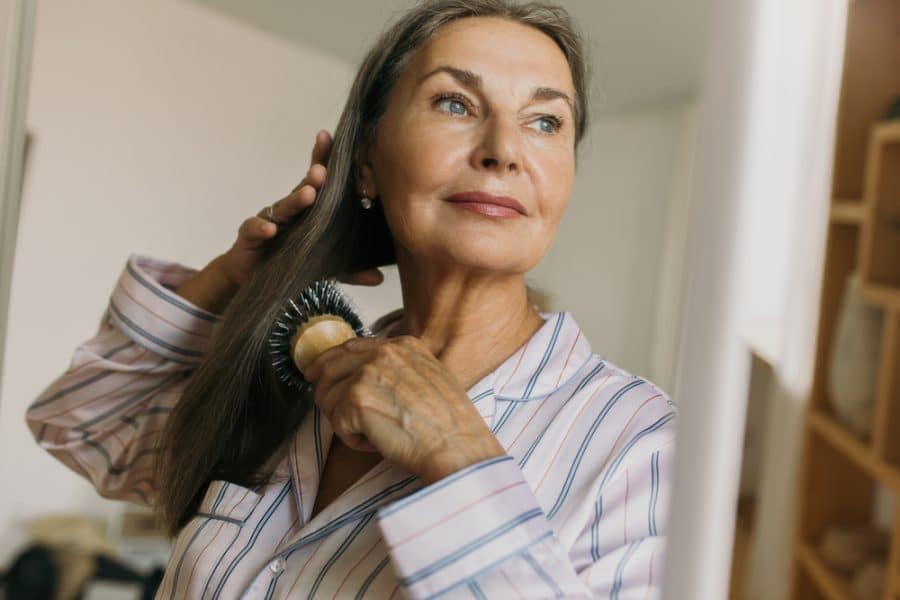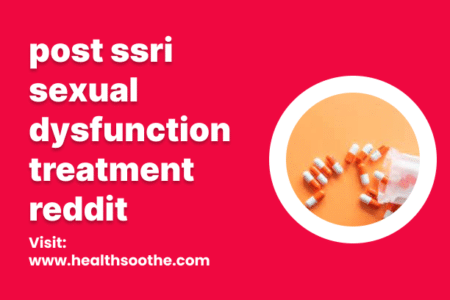Menopause, a natural phase in a woman’s life, marks the end of her reproductive years. It usually occurs in women between the ages of 45 and 55 and brings with it a range of hormonal imbalance symptoms in women, including hot flashes, mood swings and sleep disturbances. Getting a good night’s sleep is essential for overall health and well-being, and it becomes even more important during menopause. So get ready to discover nine super-effective tips that will help you enhance your sleep quality and make your transition a breeze.
1) Understand the Connection Between Menopause and Sleep Problems
Menopause-related sleep disturbances can be attributed to hormonal changes, primarily a decrease in estrogen and progesterone levels. These hormonal shifts can disrupt sleep patterns, making falling or staying asleep difficult. Common sleep issues related to menopause include insomnia, sleep apnea and night sweats. Understanding the link between menopause and sleep problems can help you take the necessary steps to improve your sleep quality.
2) Create a Consistent Sleep Schedule
A consistent sleep schedule is crucial for improving sleep quality during menopause. Going to bed and waking up at the same time every day helps regulate your internal clock, making it easier to fall asleep and wake up feeling refreshed. To establish a sleep schedule, choose a bedtime and wake-up time that works for you, and stick to it — even on weekends. Be patient, as it may take some time for your body to adjust to the new routine.
3) Develop a Relaxing Bedtime Routine
A calming pre-sleep routine can help signal to your body that it’s time to wind down and prepare for sleep. Activities like reading, meditation or light stretching can help you relax and transition into sleep mode. Avoid stimulating activities like screen time, consuming caffeine or eating heavy meals close to bedtime, as they can interfere with your ability to fall asleep.
4) Create a Cool and Comfortable Sleep Sanctuary
During menopause, maintaining a cool and comfortable bedroom is essential for optimal sleep quality, as night sweats are a common concern. Here’s how to create a sleep-friendly environment:
- Set the ideal bedroom temperature – Aim for 60-67 degrees Fahrenheit for sound sleep and consider using a programmable thermostat for consistency.
- Optimize air circulation and ventilation – Use fans or an air conditioner, and open windows when outdoor conditions permit.
- Choose the right bedding and sleepwear – Opt for breathable materials like cotton, linen or moisture-wicking fabrics for bedding and sleepwear. Also, be sure to layer your bedding for easy temperature adjustments throughout the night.
- Minimize external sources of heat – Keep heat-generating electronics out of the bedroom or switch them off before bedtime. Also, avoid heavy blankets made from synthetic fibers that may trap heat.
By transforming your bedroom into a cool and comfortable sleep sanctuary, you’ll better manage menopause-related temperature fluctuations, promoting better sleep quality and overall well-being during this transitional period.

5) Manage Night Sweats and Hot Flashes
Night sweats and hot flashes are common hormonal imbalance symptoms in women going through menopause. To reduce their frequency, try making lifestyle changes such as adopting a balanced diet and practicing stress management techniques. When night sweats or hot flashes do occur, consider using cooling products or layered bedding to help regulate your body temperature and promote better sleep.
6) Exercise Regularly and Mindfully
Regular exercise offers numerous benefits for sleep and overall health during menopause. Engaging in activities like yoga, swimming or walking can help you maintain a healthy weight, reduce stress and improve sleep quality. Aim to exercise in the morning or afternoon, as late-night workouts may disrupt your sleep.
7) Consider Hormone Replacement Therapy (HRT)
Hormone replacement therapy (HRT) is an effective treatment option for addressing hormonal imbalance symptoms in women, including sleep disturbances commonly experienced during menopause. Here are some aspects of HRT to consider:
- Benefits of HRT for sleep and overall well-being – Improved sleep quality is one of the primary benefits of hormone replacement therapy for menopausal women. By helping to balance hormone levels, HRT can lead to more restful sleep. HRT has been demonstrated to alleviate hot flashes and night sweats, two common and uncomfortable symptoms that frequently disrupt sleep during menopause. By restoring hormonal balance, HRT may also contribute to stabilizing mood swings and fostering emotional well-being. This, in turn, can make it easier for women to navigate the various challenges that menopause presents.
- Personalized approach to HRT – Adopting a personalized approach is crucial for ensuring its effectiveness. Healthcare professionals can tailor HRT to each individual’s specific needs, taking into account factors such as medical history and symptom severity. With HRT available in various forms, including pills, patches and creams, women can enjoy flexibility in their treatment options. This diverse selection allows them to choose the most suitable method for their unique circumstances, ensuring optimal results.
- Weighing the risks and benefits – Although HRT can provide considerable benefits, it is essential to recognize the potential risks accompanying this treatment. These risks might encompass blood clots, stroke or specific types of cancer. Gaining a thorough understanding of these risks and discussing them with a healthcare provider before initiating HRT is paramount. When considering HRT as a treatment option, informed decision-making is crucial. By carefully evaluating the potential benefits against the risks under the guidance of a healthcare professional, individuals can make the most appropriate choice for their health and overall well-being.
HRT can be a powerful tool in addressing menopause-related sleep disturbances. However, consulting with a healthcare professional to assess your situation and determine if HRT is the right option for you is essential.
8) Limit Alcohol and Caffeine Intake
Alcohol and caffeine consumption can adversely affect sleep quality, particularly when ingested near bedtime. Research indicates that caffeine may exacerbate vasomotor symptoms [mfn]https://pubmed.ncbi.nlm.nih.gov/25051286/[/mfn] — aka hot flashes — in postmenopausal women, potentially leading to further sleep disturbances. To promote a restful night, it’s advisable to limit your intake of these substances and opt for alternatives like herbal tea or decaffeinated coffee to facilitate relaxation in the evening.
9) Practice Stress Management and Relaxation Techniques
Stress can exacerbate sleep issues during menopause, making it essential to find ways to manage and reduce stress. Incorporate relaxation techniques such as deep breathing, mindfulness and journaling into your daily routine to help calm your mind and body. Consider exploring resources like classes, apps or books to learn more about effective stress management and relaxation methods.
Final Thoughts on Better Sleep During Menopause
Improving your sleep during menopause is vital for maintaining overall health and well-being. By implementing these nine tips, you can tackle common sleep issues and make this transitional period more manageable. Remember to be patient with yourself as you adjust to new routines and strategies, and don’t hesitate to seek professional help if needed. Prioritizing sleep will not only help you navigate menopause more comfortably but also contribute to your long-term health and wellness.





